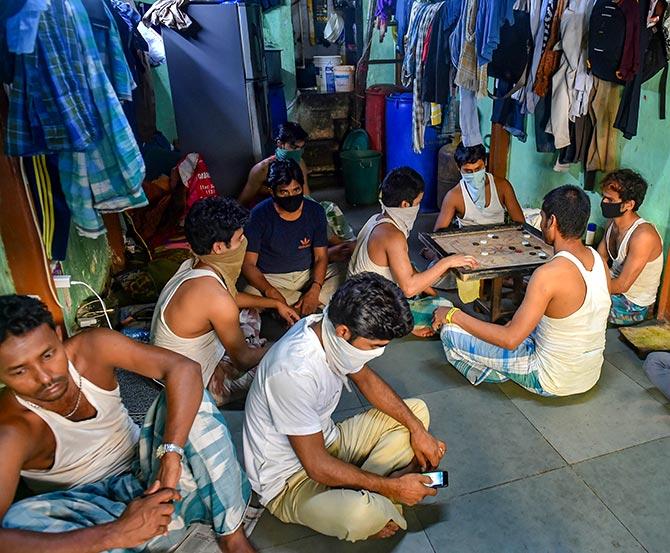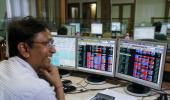'This is a period of significant uncertainty, of unknown unknowns.'

Chief Economic Advisor Krishnamurthy Subramanian tells Arup Roychoudhury that economic activity is set to be hit as the country is under a lockdown because of the spread of COVID-19.
How serious is this for the economy? Can it be compared with events like the 2008 global financial crisis, in terms of impact?
In the Indian context what I would say is, looking at the data and an event like this you always have to be very careful about tomorrow versus today.
But based on data today, if you look at all the other countries, and follow statistical modelling, there is a way this is happening.
That is stage I, then stage II. We are at stage II currently.
And I think the good news that has come is that we still haven't seen community spreading, according to the Indian Council of Medical Research, because it is community spread that creates exponential growth.
So in that sense, the linear growth, together with the evidence on absence of community spread seems to suggest, I actually would be very careful about saying anything about the future. But as of today, the data seems to suggest that we are doing better than other countries. But we clearly see a negative shock on the health side.
Economically, there will be an impact. For instance, health experts are saying you need to flatten the curve. You do this to bring equilibrium between the health resources and the number of people that would be sick at a particular point in time.
But that flattening the curve will require measures like a lockdown. That also has an economic impact.
So there is clearly a trade-off between the two. Then there are important distinctions in my opinion between a global financial crisis and a pandemic. Because the global financial crisis actually stemmed from the financial sector. And when crises emanate from the financial sector, they are far more long-drawn.
Is it time to relook the GDP forecasts for 2019-2020 and 2020-2021?
This is a period of significant uncertainty, of unknown unknowns.
While you can sense directionally, but I think giving any magnitudes will lead to a significant prospect for error.
Given the kind of uncertainty there is, putting quantitative estimates is actually very hard.
We do have our internal assessments on this, but I think that is something prone to significant error. We know that indicators for March will get impacted. April and May will also get hit.
It is, however, too early to give new numbers as the situation is still ever-changing.
What sort of impact are we seeing on tax revenue and divestment collections?
There will be an impact. The good thing though is that the targets are for the full year. There was work that was already getting done on these.
The timing may be affected. That is something which will have to be factored in. It is very hard to speculate at this point, but my sense is that given that this is actually has to be done in the year.
How should the government deal with this going ahead, from the economic perspective?
Broadly, I think this basically calls for a sort of a coordinated response from the Centre, the RBI and the financial sector.
The measures will have to focus on the broader macro picture and at the same time the specific sectors which have been the worst hit.
(This interview was originally published in March 22, 2020 edition of Business Standard).












 © 2025
© 2025